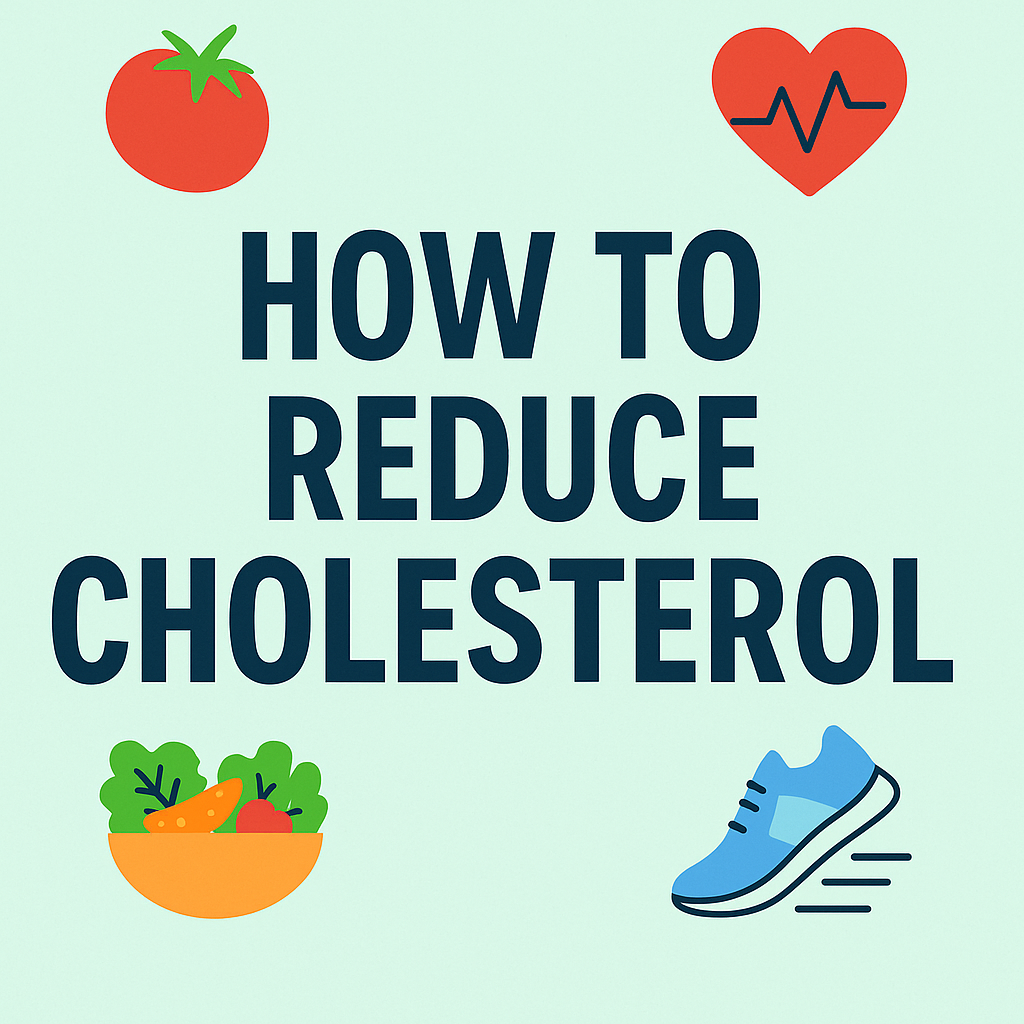High levels of LDL cholesterol, total cholesterol, and triglycerides significantly increase the risk of heart disease. While statins and medications can help, a comprehensive lifestyle approach that includes dietary interventions, stress management, and Ayurvedic wisdom can dramatically improve your lipid profile — often rivaling medications in effect.
Let’s explore the most effective modern and Ayurvedic strategies to support healthy cholesterol levels — backed by both modern research and centuries-old traditions. 🌟
🧁 Modern Science-Backed Foods to Lower Cholesterol
1. Soluble Fiber (Oats, Barley, Psyllium, Legumes):
- Helps bind bile acids and reduce LDL.
- 5–10 g/day of soluble fiber can lower LDL by 5–11 mg/dL.
- Sources: Oats, barley, lentils, beans, psyllium husk.
2. Nuts and Seeds:
- Almonds, walnuts, flaxseeds, and chia reduce LDL and triglycerides.
- Daily consumption (~30 g) = 5–10% drop in LDL.
3. Fruits & Vegetables:
- Rich in pectin, antioxidants, and phytosterols.
- Avocados, berries, citrus fruits, grapes, and leafy greens improve cholesterol metabolism.
4. Soy Products and Plant Proteins:
- 25 g/day of soy protein can lower LDL by 3–4%.
- Include tofu, edamame, soy milk, chickpeas, lentils.
5. Healthy Fats (Olive oil, MUFAs & PUFAs):
- Replacing saturated fats with MUFAs/PUFAs reduces LDL by 10–15%.
- Include olive oil, fatty fish, nuts, seeds.
6. Garlic:
🌿 Animal-Based Foods That Help
1. Fatty Fish:
- Omega-3s reduce triglycerides by 25–30%.
- Include salmon, sardines, mackerel twice a week.
2. Lean Proteins (Eggs, Chicken):
- Low in saturated fats; replacing red meat with lean meats helps reduce LDL.
3. Probiotic Dairy:
- Non-fat yogurt, kefir may reduce LDL due to gut microbiome benefits.
🍀 Ayurvedic Approaches to Cholesterol
1. Guggul (Commiphora mukul):
- Lowers LDL and triglycerides by 12–15%.
- Used in “Medohar Guggulu,” “Triphala Guggulu.”
2. Arjuna (Terminalia arjuna):
- Strengthens cardiac function, reduces LDL and improves HDL.
3. Garlic (Lasuna):
- Considered Rasayana; reduces ‘ama’ and pacifies Vata-Kapha.
4. Triphala & Amla:
- Powerful antioxidants; reduce LDL, raise HDL.
5. Fenugreek (Methi):
6. Mustadi Ghanavati:
- Proven in clinical trials to reduce total cholesterol by 22%.
🪗 Lifestyle Practices for Lipid Balance
1. Exercise:
- Cardio + strength training = Lower TGs by 20–30%, raise HDL.
- 150 minutes/week recommended.
- 5–10% body weight loss = 15–20% TG drop, LDL drop.
3. Stress Management:
- Yoga, meditation, pranayama reduce cortisol and LDL.
4. Sleep Optimization:
- 7–9 hrs/night essential. Poor sleep raises LDL.
5. Meal Timing (Dinacharya):
- Ayurveda recommends light dinners, biggest meal at noon.
- Modern research supports time-restricted eating for metabolic health.
Conclusion ✨
Whether you choose oats and olive oil or guggul and garlic, one thing is clear: cholesterol can be tamed with the right habits. A fusion of modern nutrition and ancient Ayurvedic science offers not just better blood markers but a healthier, stronger heart and metabolism.
Make these changes one step at a time, and celebrate your journey to better health. ❤️
📖 References:
- Brown L, Rosner B, Willett WW, Sacks FM. Cholesterol-lowering effects of dietary fiber: a meta-analysis. Am J Clin Nutr. 1999 Jan;69(1):30-42.
- Guasch-Ferré M, Tessier AJ, Petersen KS, Sapp PA, Tapsell LC, Salas-Salvadó J, Ros E, Kris-Etherton PM. Effects of Nut Consumption on Blood Lipids and Lipoproteins: A Comprehensive Literature Update. Nutrients. 2023 Jan 23;15(3):596.
- Blanco Mejia S, Messina M, Li SS, Viguiliouk E, Chiavaroli L, Khan TA, Srichaikul K, Mirrahimi A, Sievenpiper JL, Kris-Etherton P, Jenkins DJA. A Meta-Analysis of 46 Studies Identified by the FDA Demonstrates that Soy Protein Decreases Circulating LDL and Total Cholesterol Concentrations in Adults. J Nutr. 2019 Jun 1;149(6):968-981.
- Tindall AM, Kris-Etherton PM, Petersen KS. Replacing Saturated Fats with Unsaturated Fats from Walnuts or Vegetable Oils Lowers Atherogenic Lipoprotein Classes Without Increasing Lipoprotein(a). J Nutr. 2020 Apr 1;150(4):818-825.
- Rodriguez D, Lavie CJ, Elagizi A, Milani RV. Update on Omega-3 Polyunsaturated Fatty Acids on Cardiovascular Health. Nutrients. 2022 Dec 3;14(23):5146.
- Deng R. Therapeutic effects of guggul and its constituent guggulsterone: cardiovascular benefits. Cardiovasc Drug Rev. 2007 Winter;25(4):375-90.
- Dwivedi S, Agarwal MP. Antianginal and cardioprotective effects of Terminalia arjuna, an indigenous drug, in coronary artery disease. J Assoc Physicians India. 1994 Apr;42(4):287-9.
- Gong J, Fang K, Dong H, Wang D, Hu M, Lu F. Effect of fenugreek on hyperglycaemia and hyperlipidemia in diabetes and prediabetes: A meta-analysis. J Ethnopharmacol. 2016 Dec 24;194:260-268.

Akanksha Sharma
Dr. Akanksha Sharma, Head Writer and creator of AtoZ of Pregnancy, is dedicated to empowering women, parents, and families through 360-degree knowledge. She and her team provide evidence-based advice to guide families through pregnancy, parenting and beyond.






